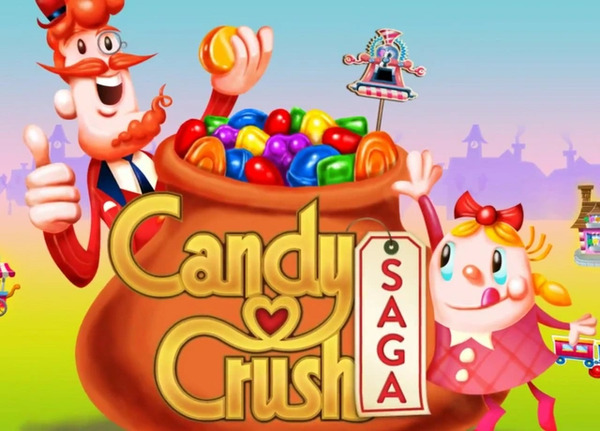Hogwarts Legacy – A Magical Journey into the Wizarding World’s Past
1. Introduction to Hogwarts Legacy
Hogwarts Legacy is an open-world action RPG developed by Portkey Games and published by Warner Bros. Games, set in the 1800s wizarding world — long before the time of Harry Potter. Released in 2023 for multiple platforms, including PC, PlayStation, Xbox, and Nintendo Switch, this title invites players to attend Hogwarts as a custom fifth-year student with a mysterious link to ancient magic.
What makes Hogwarts Legacy truly magical is its blend of exploration, spellcasting, creature interaction, and deep RPG mechanics, all wrapped in a richly detailed and expansive rendition of the Wizarding World.
2. Setting and Storyline
Unlike previous games tied closely to the Harry Potter saga, Hogwarts Legacy tells an original story. Players take on the role of a student arriving late at Hogwarts, chosen due to their unique ability to harness a forgotten form of ancient magic.
You’ll explore a mystery tied to a goblin rebellion, led by the menacing Ranrok, and rogue dark wizards like Victor Rookwood. Along the way, players navigate friendships, uncover hidden truths about wizarding history, and make morally complex decisions that shape the outcome of the story.
3. Creating Your Wizard
From the start, character customization allows you to craft your own unique wizard or witch. You can modify:
-
Facial features
-
Hair, skin tone, scars, voice pitch
-
House selection (Gryffindor, Slytherin, Hufflepuff, or Ravenclaw)
The Sorting Hat ceremony gives you a recommendation, but you ultimately choose your house — influencing dormitories, unique common rooms, and some interactions throughout your journey.
4. Exploring the Wizarding World
Hogwarts Legacy is a fully open-world game, and Hogwarts Castle is just the beginning. Players can travel to:
-
Hogsmeade Village – Buy potions, gear, and visit shops
-
Forbidden Forest – Home to dangerous creatures
-
Black Lake and Highlands – Filled with secrets and side quests
-
Secret dungeons, ruins, and magical trials
The world is dynamic, with seasons, weather, day-night cycles, and hidden areas that change based on story progression.
5. Spellcasting and Combat System
Combat in Hogwarts Legacy blends magic, potions, stealth, and strategic planning. Players gradually unlock and master over 20 spells, each with tactical uses.
Key Spell Categories:
-
Damage Spells: Incendio, Expelliarmus, Bombarda
-
Control Spells: Levioso, Arresto Momentum
-
Force Spells: Accio, Depulso
-
Unforgivable Curses: Crucio, Imperio, Avada Kedavra (yes, really)
Combat is fast-paced and cinematic. You can combo spells, use ancient magic finishers, throw environmental objects, and mix in plant-based allies or potions to outwit stronger foes.
6. The Hogwarts Experience
Inside Hogwarts, players will:
-
Attend classes like Defense Against the Dark Arts, Potions, Herbology, and Flying
-
Solve magical puzzles across the castle
-
Interact with students, professors, and ghosts
-
Discover secret passages, talking portraits, and House-specific quests
Each class offers new mechanics or upgrades. For example, Potions allows you to craft healing brews or damage boosts, while Herbology introduces combat plants like Mandrakes or Chinese Chomping Cabbage.
7. Beast Care and the Room of Requirement
One of the most unique systems is the Room of Requirement, a customizable space that evolves over time. In it, you can:
-
Grow magical plants
-
Brew potions
-
Upgrade gear
-
Build crafting stations and decorations
-
House and care for magical beasts like Mooncalves, Graphorns, Thestrals, and Hippogriffs
Each beast can be tamed, fed, groomed, and provides resources used to enhance your gear. It's a mini-game in itself that adds life and charm to your Hogwarts journey.
8. Gear, Talents, and Customization
Your character’s growth is tied to Talents and Gear. You can upgrade stats like health, stealth, spell power, and ancient magic meter using skill points earned from leveling up.
Gear Includes:
-
Robes
-
Gloves
-
Scarves
-
Headwear
-
Outfits
-
Brooms (for flying)
Rarity tiers (Common, Rare, Legendary) add RPG depth, and cosmetics can be freely transmogged so you always look exactly how you want.
9. Choices and Morality
Hogwarts Legacy isn’t strictly linear. Throughout the game, players must make choices that impact relationships and the ending.
-
Will you learn the Unforgivable Curses?
-
Do you show mercy or seek power?
-
Will you aid Ranrok’s rebellion or stop it at all costs?
While there’s no traditional morality meter, dialogue and quest decisions do affect outcomes, giving the game light role-playing flavor without being overly punitive.
10. Final Thoughts and Future Potential
Hogwarts Legacy is a dream come true for fans of the Wizarding World. It combines stunning visuals, satisfying combat, deep lore, and immersive exploration to deliver the ultimate Hogwarts fantasy. Whether you're a casual fan or a die-hard Potterhead, it offers hours of magical gameplay.
Though some critics pointed to repetitive side content and lack of deeper romance or relationships, the game remains a strong foundation for future wizarding RPGs. Rumors of DLC or a sequel suggest this is just the beginning of the Legacy.




























